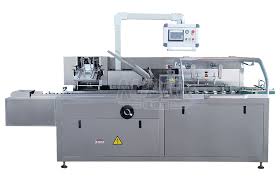Full Control Tablet Weight & Thickness
An automatic tablet press is meticulously engineered for exceptional accuracy in the production of each pill, and these features account for weight and thickness. While more advanced models have onboard real-time monitoring of packing pressure, it is rather based on sensors installed in the steel wheel. This technology ensures tablets are very close to the target weight, often within ±0.5% of the target dose. This level of specificity is vitally important for pharmaceuticals to ensure that the dosage remains consistent since even slight variation could affect how effective a medication will be.
Uniform Density and Hardness
The tablet density and hardness are adherent to each other meaning that the tablets can dissolve at a given rate while ensuring they could stand up well with the handling processes of packaging. These tablet presses are equipped with precision-engineered dies and punches, by which the same equal force applies to all tablets. Consistent pressure allows every tablet to be of the same density and hardness, preventing breakage from occurring with the final effect that ingredients are released in a timely manner when ingested.
Fast-Paced Production Without Compromising Quality
While speed usually comes at the expense of quality on manufacturing, the latest automatic tablet presses drastically improve production rates while keeping it high in standards. These machines are capable of making thousands of tablets per hour, rates not attainable with manual or semi-automatic presses. Quality also remains top-notch despite the blistering pace, as advanced software tracks machine parameters in real time and adjusts settings on-the-fly to ensure that each batch adheres to rigorous quality requirements.

Advanced Software Integration
Modern, automatic tablet presses have frequently included software capabilities that allow providers to diligently monitor and gather data on the production process. It enables operators to adjust settings in timely manner according a different formulation and tablet sizes of product which guarantee the best fitting machine set up for any type of products. The software is also able to forecast the simple molecular deterioration of machine parts, prompting maintenance well before components fail catastrophically. Taking a proactive approach like this also helps prevent interrupted production and ensures stable tablet quality.
Operational Reliability Improvements
Consistency in tablet output is crucial and automatic tablet presses are designed to meet specific performance standards throughout the length of operational cycles. Made of durable materials, these machines use superior quality parts that can withstand the daily use and abuse. Maintenance is also provided by the software of the machine in which basics maintenance schedules are maintained, and it sends automated reminders to perform them so that its reliability can be kept intact.
In conclusion, automatic tablet press could improve the uniformity of tableting efficiently. Patented technology provides the accuracy, force uniformity and reliability demanded by tableting machines that must produce tablets precisely to specification with each production run. Pharmaceutical companies depend on this level of consistency to deliver their products safely and effectively.